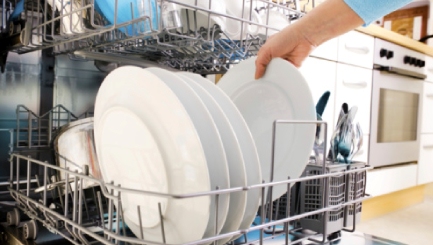A Disease-Causing Fungus May be living in Your Dishwasher
 According to a study published in the Mycological Society journal, Fungal Biology, a fungus that is not deterred by high temperatures or detergents has been found living in some of the most common household appliances, with potential wellness risks to humans.
According to a study published in the Mycological Society journal, Fungal Biology, a fungus that is not deterred by high temperatures or detergents has been found living in some of the most common household appliances, with potential wellness risks to humans.
For the study, researchers took samples from 189 dishwashers in homes in 101 cities on six continents, including Europe, and examined the fungal flora at the University of Ljubljana, Slovenia. Scientists founds that 62% of the dishwashers contained fungi on the rubber door seal and 56% were contaminated with two species of black yeasts (Exophiala dermatitidis and E. phaeomuriformis). Your wellbeing is particularly at risk to these fungi, as they can cause fatal infections in healthy people, as well as causing systemic disease colonising the lungs of patients with cystic fibrosis.
The researchers say that the moist, hot environments of dishwashers, washing machines and coffee makers are the perfect habitat for extremotolerant fungi. The black yeasts in particular show a remarkable tolerance to temperatures of between 60° to 80°C intermittently reached in dishwashers, as well as powerful detergents, high concentrations of salt and either acid or alkaline water. The researchers concluded that ‘Knowing that these fungi co-inhabit our homes, further research is imperative as only this could reveal whether the presence of E. dermatitidis inside our households poses any threat to human health.’
However, though Frank Odds, Emeritus Professor of Medical Mycology at the University of Aberdeen, agrees that the fungi seem to be evolving to ‘adapt to those conditions’ found in dishwashers, he argues that ‘There’s absolutely no reason why anyone should be upset by finding any kind of fungus around their house.’ According to Odds, there’s already black fungus on shower curtains and bath and sink edges, for example, that most people are living in close proximity to as ‘Yes, they cause infections, but luckily for us they’re very rare’.
Odds says that ‘It’s that sort of person who is at risk – not people doing the washing up’ as people who are very ill, are immunosuppressed or have had transplantation surgery are the only ones at risk. Otherwise ‘We breathe millions of mould and spores and yeast particles every minute of the day and we seem to be pretty well adapted to not being affected by them as a rule’.

Comments are closed.